Hiring fraud is rising, and it’s hitting businesses harder than ever. According to a 2024 study, 72% of hiring managers said they caught candidates misrepresenting themselves during the hiring process. Another study showed job or employment scams increased by 118% in 2023 compared to the previous year. These scams primarily occurred through websites like LinkedIn or job search platforms. As deepfake videos, forged credentials, and AI-written resumes become more common, employers need more than traditional background checks. They need a strategy to defend against disinformation.
Disinformation security in hiring goes beyond resume verification. It involves identifying intentional deception and building internal systems that flag inconsistencies early. Companies that ignore these risks could end up with unqualified workers, damaged reputations, or serious compliance violations.
What is Disinformation in Hiring?
Disinformation in hiring refers to any false or manipulated data used to gain employment or distort hiring decisions. It may come from candidates or external actors who aim to sabotage hiring pipelines or impersonate job applicants.
Some examples include:
- AI-generated resumes with inflated skills.
- Fake degrees or professional certifications.
- Deepfake video interviews impersonating real people.
- Social media bots impersonating applicants.
- Fraudulent job applicants using stolen identities.
These tactics are getting harder to detect. Standard verification methods like resume reviews, reference checks, and interviews can no longer catch every case.
Why Disinformation is Growing
Digital hiring platforms have made it easier to apply to jobs at scale. That’s good for speed, but bad for screening. Automated workflows make it possible for candidates to game the system. AI tools help people craft perfect-sounding resumes, even if the experience is fictional.
Add to these threats the rise of generative AI, and the complexity increases. Some applicants now use large language models to write cover letters or answer screening questions. While not always malicious, this can mask red flags or exaggerate qualifications.
Bad actors can also use the same technology. In 2023, the FBI warned of cases where deepfake video interviews tricked employers into hiring fraudulent remote workers. These workers then had access to sensitive systems or data, and in some cases, never showed up.
How Disinformation Harms Your Business
Disinformation in hiring doesn’t just lead to bad hires. It creates downstream risks that affect operations, compliance, and brand reputation. For example, disinformation or outright trickery can cause:
- Productivity loss: Hiring someone who isn’t qualified creates output gaps. Teams are left to pick up the slack or redo poor work.
- Security breaches: Fraudulent hires may gain access to company systems, data, or proprietary software, which can create serious cybersecurity vulnerabilities.
- Regulatory exposure: In industries like defense, finance, or healthcare, hiring an unverified candidate could violate compliance rules, creating legal risk and the possibility of compliance fines.
- Brand damage: A bad hire can erode client trust, especially if the deception becomes public.
- Team morale issues: When other employees discover someone misrepresented themselves, it undermines trust in leadership and weakens the culture.
These risks aren’t isolated. They ripple through departments, slow down projects, and drain resources. As deceptive tactics become more advanced, companies must respond with more rigorous verification tools and smarter safeguards. Preventing disinformation isn’t just about stopping fraud—it’s about maintaining operational integrity across the entire organization.
What Companies Must Do
Disinformation security in hiring requires a layered strategy. It’s not about finding one tool that solves everything. It’s about building processes that make deception harder to pull off and easier to detect.
Here’s what that could look like in practice:
- Digital identity verification: Use technology that validates the applicant’s identity through government ID scans, biometric checks, or two-factor authentication. Applying these tools is especially important for remote-first companies.
- Deep resume analysis: You can also use AI for good. For example, recruiters can use AI tools to cross-check resume claims against publicly available data, such as licensing boards, previous employers, or other online data.
- Live video verification: Require live interviews, not just pre-recorded videos. Trained interviewers can spot deepfake artifacts or other red flag inconsistencies.
- Social and behavioral vetting: Assess whether social profiles align with stated work history. Look for signs of identity theft or content scraping.
- Enhanced background checks: Consider moving beyond basic background reports. Work with services verifying professional licenses, certifications, education, and online footprint consistency.
- Internal training: Educate recruiters and hiring managers on the latest forms of deception. Many hiring managers lack the training and experience to spot deepfakes or AI-written answers.
- Audit your applicant tracking system: Check whether your ATS allows for automation exploits or resume manipulation.
The GTN Approach to Secure, Verified Hiring
GTN Technical Staffing works with clients in critical sectors: cybersecurity, engineering, software development, aerospace, and more. These industries can’t afford disinformation-based hiring mistakes.
Our approach to disinformation security includes:
- Proactive screening: We flag inconsistencies during intake, not after placement.
- Credential validation: We verify certifications, degrees, and licenses before submitting candidates to our clients.
- Live candidate engagement: All candidates undergo live human vetting with no shortcuts.
- Risk-aware recruiting: We apply extra scrutiny to roles with access to systems, sensitive IP, or client data.
- Client education: We help clients understand where hiring fraud could happen and how to close those gaps.
Because we place technical talent, we don’t just ask what candidates know. We assess how they know it and whether their experience holds up under scrutiny. Why? Because we believe disinformation will evolve. So must your defenses.
Disinformation in hiring is not a passing trend. It’s a growing threat fueled by cheap, accessible AI tools and a job market that values speed over accuracy. Employers falling behind risk more than just a bad hire. They risk long-term damage to systems, culture, and credibility.
Disinformation security must become a core part of your hiring infrastructure. It’s not enough to hire fast. You need to hire right.
At GTN, we believe in earning your trust through transparency and a refusal to cut corners. If you’re looking for a partner who treats hiring integrity as a top priority, we’re ready to help. Contact us.





